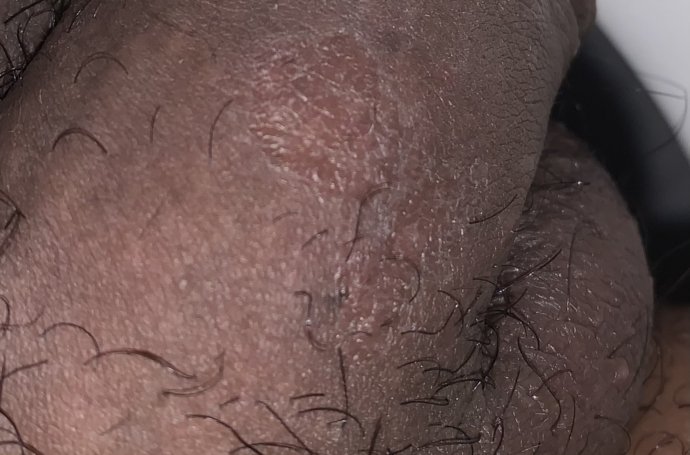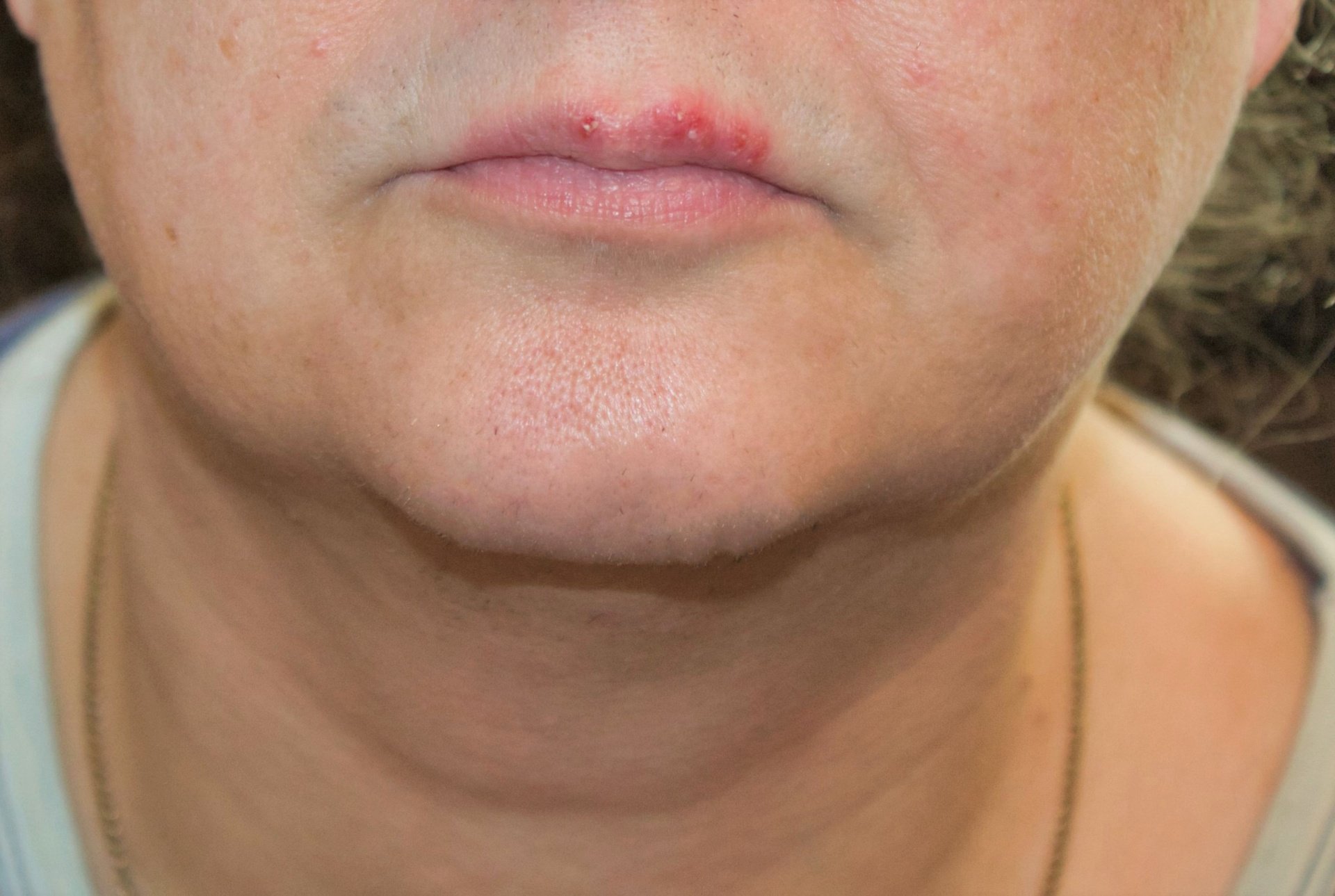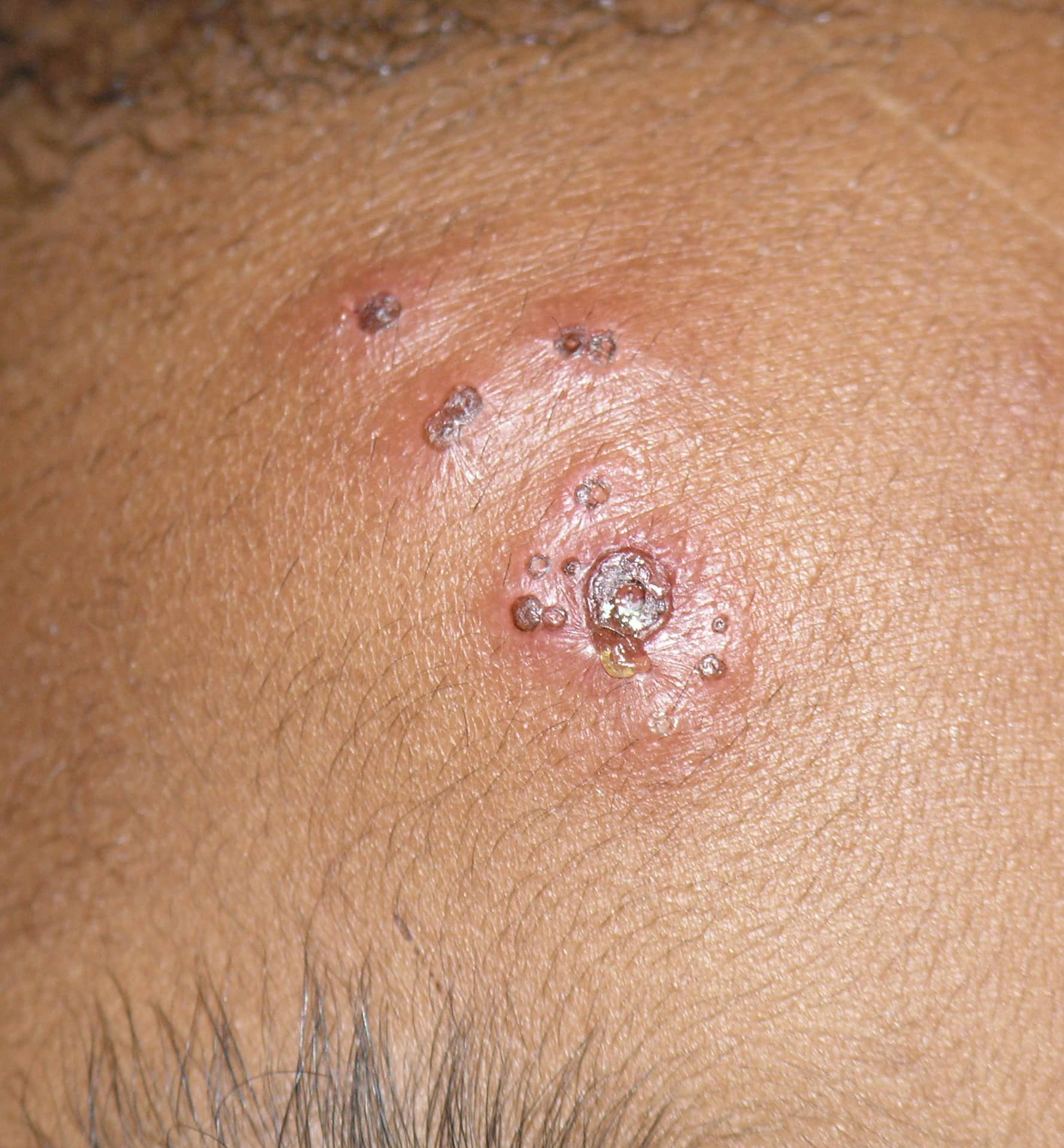Is It Safe To Breastfeed If I Have Genital Herpes
Yes as long as there isnt an open lesion on your chest or breast. If you have an active outbreak while breastfeeding, its possible to spread the infection to your nipples through touch. Careful hand-washing can prevent this spread. You shouldnt nurse from a breast that has herpes sores. You can pump breast milk until the sores heal. Dont give your baby expressed breast milk if the pump comes into contact with an open sore.
Episodic Therapy For Recurrences
For a recurrent episode, treatment takes 1 to 5 days, depending on the type of medication and dosage. You should begin the medication as soon as you notice any signs or symptoms of herpes, preferably during the prodrome stage that precedes the outbreak of lesions.
In order for episodic therapy to be effective, it must be taken no later than 1 day after a lesion appears. If taken during prodrome, episodic therapy may help prevent an outbreak from occurring or reduce its severity. If taken at the first sign of a lesion, it can help speed healing.
Signs And Symptoms Of Herpes
Both kinds of herpes cause outbreaks of painful sores on the skin. Symptoms of herpes include:
Oral herpes sores
Sometimes called cold sores, HSV-1 produces painful sores that look like blisters at first. They eventually burst and crust over. It usually takes a week to 10 days for the sores to clear up.
Genital herpes sores
The sores that appear in the genital area can come from HSV-1 or HSV-2. Like the sores on the mouth, they start as painful blisters, then dry up and heal over time.
Other sores
Although they usually show up around the mouth or genitals, herpes sores can appear anywhere on the body.
Flu-like symptoms
During a herpes outbreak, you might feel other symptoms such as fever, tiredness, or body aches.
Not all people who have herpes have frequent outbreaks. Some people might have a single outbreak then never show symptoms again. The virus may stay dormant in their body.
Read Also: What Medicine Is Used To Treat Genital Herpes
I Have Herpes You Could Too
If you get cold sores, you have herpes. If you get cold sores, you have herpes. If you get cold sores, you have herpes.
There, I said it.
When I got my test results, I cried for an hour. And then I cried some more. Not because I was scared for my health, but because I was afraid of what people would think. Part of me thought no one would ever want to be with me that I was suddenly unloveable. This horrible thing had happened to me without me knowing, and it was never going away.
My mom was the first person I told.
Do you see me differently now that I have herpes? I asked, trying not to cry.
I think youre still the same daughter I had, just more grown-up now, she assured me.
After a pause, she chuckled. Just remember to use condoms.
I always do.
Which barring two ex-partners who had gotten tested and a couple of accidents is true. I have always taken my sexual health seriously. I get tested every six months and expect the same from my partners.
But herpes is so common they dont even test for it on a regular STI panel. I probably wouldnt have ever found out I had it if my partner at the time hadnt had his first outbreak. When he called me to tell me he had herpes, I didnt know what to do. After countless Google searches and conversations with my closest friends, I decided to get tested. Multiple doctors repeatedly told me that getting tested while not showing any symptoms was rare and discouraged. But I wanted to know.
Myth: You Always Get A Herpes Outbreak Soon After Becoming Infected

Herpes is a sneaky infection. It can exist in the body for months or even years without showing symptoms, but it’s still contagious nonetheless.
If you do develop an outbreak, it will most likely happen two to twelve days after initial exposure to the virus. After the blisters break, they can take up to four weeks to heal.
Fortunately, subsequent outbreaks tend to be less intense. Recurring outbreaks are common but don’t last nearly as long. These sores tend to heal within three to seven days, and the number of outbreak periods may even decrease over time.
Recommended Reading: How To Not Get Herpes
Differences Between Oral And Genital Herpes Outbreaks
The location of the sores is the main difference between the two types of herpes. Oral herpes sores generally develop on the mouth and lips, usually at the border of the lip where it meets the skin of the face.
Genital herpes sores can occur in a wider variety of locations depending on where the virus entered the body. These locations may include:
- For women and men:
What Can I Do If I Have Herpes Simplex 2
Many people who find out they have herpes feel depressed knowing they’ll always have the virus and can give it to others. But you arent alone. Herpes is one of the most common STIs, both in the U.S. and worldwide. If you have herpes, you should:
- Learn all you can about it. Information will help you to manage your disease and feel better about yourself.
- Talk about your illness with your doctor.
If you have herpes, you can still:
- Have sex if you use a condom or dental dam , and you tell your partner about your illness. Some couples, who have sexual relations only with each other, may choose not to use condoms even though one partner has herpes. Because each situation is different, you should ask your doctor if this is the right choice for you in your relationship.
- Have children. People with herpes can still give birth to healthy babies. If you have herpes and plan to have children, discuss your illness with your healthcare provider.
If you have herpes, you should also get checked for HIV and other STIs .
Read Also: Doctors Who Specialize In Herpes
What Happens If Herpes Is Not Treated
Herpes can be painful, but it generally does not cause serious health problems like other STDs can.
Without treatment, you might continue to have regular outbreaks, or they could only happen rarely. Some people naturally stop getting outbreaks after a while. Herpes typically does not get worse over time.
The information on this page is adapted from the CDC and Planned Parenthood.
When To See A Healthcare Provider
The early recognition of genital herpes, ideally during the prodromal stage, allows you to access treatments that can shorten the duration and severity of an outbreak.
Clearly, this can be difficult during your first outbreak, given that you probably won’t be expecting it. But, over time, you will be better able to recognize the tell-tale signs and know when it’s time to act.
Read Also: Percentage Of Americans With Herpes
Can Women Who Have Sex With Women Get Genital Herpes
Yes. It is possible to get genital herpes, or any other STI, if you are a woman who has sex only with women.
Talk to your partner about her sexual history before having sex, and ask your doctor or nurse about getting tested if you have signs or symptoms of genital herpes. Use a dental dam during oral sex and avoid sexual activity during an outbreak.
Recurrent Episodes Of Genital Herpes
Recurrences are usually less painful and shorter in duration than the first episode of genital herpes. Over time, episodes usually become less frequent and may eventually stop altogether. Infections caused by HSV1 are less likely to recur in the genital area than infections caused by HSV2.
Recurrences may be triggered by:
- no apparent reason noted.
Recommended Reading: Why Do I Keep Having Herpes Breakouts
What Triggers A Shingles Flare
Shingles can be triggered by a number of factors, and sensitivities to each factor can vary from person to person.
Things that weaken the immune system, such as stress, certain medications, or other health conditions, can cause shingles flare-ups, as can certain foods that contain an amino acid that helps the virus to replicate.
Can I Breastfeed If I Have Genital Herpes

Yes, you can breastfeed if you have genital herpes, but not if you have a herpes sore on one of your breasts. If you have genital herpes, it is possible to spread the infection to any part of your breast, including your nipple and areola.
If you have any genital herpes sores on one or both of your breasts:
- You can keep breastfeeding as long as your baby or pumping equipment does not touch a herpes sore.
- Do not breastfeed from the breast with sores. Herpes is spread through contact with sores and can be dangerous to a newborn baby.
- Pump or hand-express your milk from the breast with sores until the sores heal. Pumping will help keep up your milk supply and prevent your breast from getting overly full and painful. You can store your milk to give to your baby in a bottle for another feeding. But if parts of your pump also touch the sore while pumping, throw the milk away.
Recommended Reading: How To Treat Herpes Outbreak On Buttocks
Read Also: Can You Spread Herpes To Different Parts Of Your Body
Frequently Asked Questionsexpand All
People with HSV-2 infection have an increased risk of getting human immunodeficiency virus if they have sex with an HIV-infected partner. Taking suppressive therapy does not decrease this risk.
If a woman is pregnant and infected with HSV, it can be passed to the fetus during birth while passing through the womans infected birth canal. This is most likely to occur if a woman first becomes infected with HSV during pregnancy and in a woman who has her first outbreak late in pregnancy. But it also can occur during a recurrent outbreak in a woman who was infected before pregnancy, although the risk is much lower.
If you have sores or warning signs of an outbreak at the time of delivery, you may need to have a cesarean delivery to reduce chance of infection. The decision depends on many factors, including where the sores are on your body and whether the fetus would come into contact with them during delivery.
Yes, in most cases. The herpes virus cannot be passed to a baby through breast milk. However, the baby could get infected by touching a sore on your body. Make sure any sores that the baby could come into contact with are covered when you hold your baby or while breastfeeding. Wash your hands with soap and water before and after feeding your baby. If you have sores on your breast, you should not breastfeed your baby from that breast.
Article continues below
Genital Herpes Is Spread By Skin
The virus can be spread when someone with HSV has an episode or an outbreak characterised by having a sore, blister, ulcer or skin split . It can also be spread between episodes, when there is no sore, blister, ulcer or skin split present called asymptomatic viral shedding.
During viral shedding the virus is on the skin surface and can be spread through genital skin-to-skin contact, or from the mouth or face to genital skin during contact.
Recommended Reading: Can You Prevent Spreading Genital Herpes
Does A Cold Sore On My Mouth Mean I Have Genital Herpes
No, a cold sore on your mouth usually means you have herpes simplex virus type 1 . You can get HSV-1 by kissing someone or sharing utensils, towels, razors, or lipstick with someone who has HSV-1.
HSV-1 cannot turn into HSV-2 , but you can get a cold sore on your mouth from HSV-2 if you give oral sex to someone with HSV-2. Cold sores caused by HSV-1 or HSV-2 are contagious. You can spread it to other people or other parts of your body if you touch an open sore and then touch another part of your body. That means if you have a cold sore and give oral sex to someone, that person will get the herpes virus on his or her genitals.
Avoid touching your cold sore as much as possible. If you touch your cold sore, wash your hands right away to avoid spreading the infection to other parts of your body or other people.
How Does Genital Herpes Spread
Herpes can be spread when an infected person has lesions blisters and open sores on their body or when you do not have any symptoms. Taking antiviral medicine can help you reduce the risk of spreading genital herpes to your sexual partners. You can also:
- Inform your sexual partner that you have genital herpes.
- Use a condom every time you have sex.
- Refrain from having sex when you have symptoms.
- Abstain from performing oral sex if you have blisters or open sores around your mouth.
You May Like: How Do You Date If You Have Herpes
What Are The Stages Of Tongue Herpes
According to Johns Hopkins Medicine, 50 to 80 percent of adults in the United States have HSV-1, even though they might never have experienced any symptoms. And about 16% of people age 14-49 have HSV-2, notes the Centers for Disease Control ., and those without visible lesions can spread the virus.
Herpes can remain dormant until triggered by a fever, emotional stress, fatigue, an injury or surgery, menstruation, or persistent sunlight exposure. Once triggered, you might experience these herpes stages, which in total might last two to three weeks:
Recommended Reading: Does Herpes Get Better Over Time
Episode Frequency And Duration
Next, we investigated whether the decline in shedding rates over time was attributable to reduced frequency or shorter duration of episodes. The mean frequency of episodes over a 1-year period for the entire cohort was 14.4 episodes of total HSV-2 shedding, 11.6 episodes of subclinical shedding, and 8.7 episodes with genital lesions. Episode frequency did not change significantly over time since first herpes episode.
The duration of clinical recurrences decreased after the first year following the first genital HSV-2 episode. The mean recurrence length was 10.4 days among participants < 1 year from their first herpes episode, 7.2 days among those 19 years , and 6.5 days among those 10 years from first herpes episode . These decreases remained significant among those 19 years , and those 10 years from first herpes episode after adjusting for race. In contrast to clinical recurrences, the duration of total and subclinical episodes did not change significantly by year since initial HSV-2 episode. The mean duration of any viral shedding episode was 4.6 days, and mean subclinical episode length was 2.6 days for the entire cohort.
You May Like: Can Herpes Outbreaks Change Locations
What Are The Symptoms Of Herpes
Many people with genital herpes wonât get any symptoms, or may get symptoms for the first time months or even years after they were infected.
For most people, the first blisters go away within a month. Although the outbreaks clear-up by themselves, the virus stays in the body. This means that people usually get blisters again â which is called having a ârecurrent outbreakâ. Outbreaks usually become shorter and less severe over time.
Other symptoms can include:
-
tingling or burning around the genitals
-
feeling unwell, with aches, pains and flu-like symptoms
-
unusual vaginal discharge in women.
Remember: The Stigma Is Out Of Proportion

The stigma surrounding genital herpes is far more intense than the infection deserves. Genital herpes has been around for millennia, and HSV-2 is the most common STI in the United States. In fact, according to the WHO, genital herpes affects over 400 million people worldwide.
The genital herpes stigma prevails largely because people don’t understand it. Many assume they can catch genital herpes from a toilet seat or other common surfaces. They aren’t educated about how HSV-2 spreads or affects the body. Others don’t know that genital herpes remains dormant for months or years at a time, allowing those infected with the herpes virus to live completely normal lives.
Overall, genital herpes can be a highly manageable condition, with few physical side effects and no fatalities to date. In fact, you may not even notice the virus at all if your outbreaks are infrequent or mild. Some people find that they don’t experience symptoms until years after their first outbreak!
Don’t Miss: What To Take For Herpes Over The Counter
Can Genital Herpes Be Treated
Your physician can prescribe different medications to help reduce your symptoms and speed up the healing of an outbreak. These medicines work best when you start them soon after an outbreak occurs.
To reduce pain during an outbreak:
- Sit in warm water in a portable bath or bathtub for about 20 minutes. Avoid bubble baths.
- Keep your genital area clean and dry, and avoid tight clothes.
- Take over-the-counter medications, such as acetaminophen or ibuprofen. Avoid aspirin.
Let your physician know if you are worried about your genital herpes. He or she can recommend a support group to help you cope with the virus.
Don’t Have Sex During An Active Outbreak
You can also limit the risk of transmission by refraining from intimate contact until a herpes outbreak clears and heals completely. The virus is highly contagious for your partner from the time you begin to feel the sensation of developing sores until your outbreak has completely scabbed and healed.
Don’t Miss: How Can You Get Rid Of Herpes In Mouth